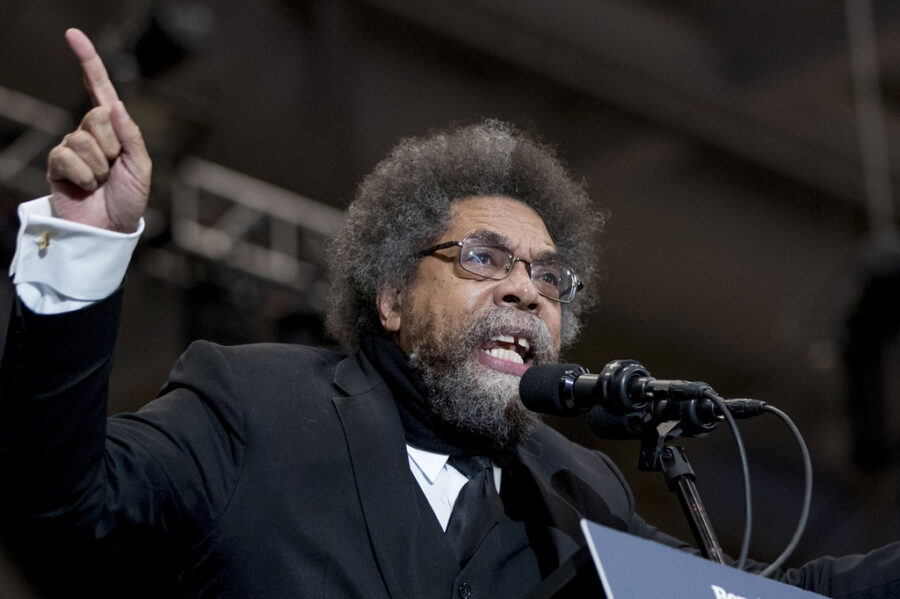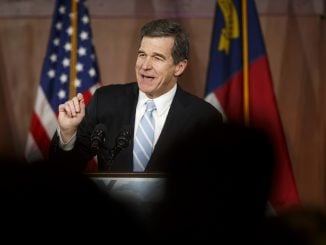RALEIGH — Two rulings were handed down on Aug. 12 related to lawsuits filed over the certifications of third parties by the North Carolina Board of Elections.
Wake County Superior Court Judge Keith Gregory, an appointee of Gov. Roy Cooper, issued a ruling from the bench against the North Carolina Democratic Party in its attempt to remove We The People Party from the November ballot.
“It would be unconscionable for this court to attempt to tell a candidate who has decided to use one of two methods that the method that he used was a subterfuge, when in fact, if it is or it isn’t, he still complied with the requirements,” Gregory said in court on Monday.
The N.C. Democratic Party (NCDP) sued the North Carolina State Board of Elections after the board voted 4-1 to certify We The People Party (WTP) as an alternative party with Robert F. Kennedy Jr. as its presidential candidate.
The NCDP argued the NCSBE’s certification of Kennedy’s party was “Allowing unaffiliated candidates to masquerade as political parties.”
As an alternative party, We the People needed to collect at least 13,865 signatures from registered voters to qualify, a number the party surpassed. If Kennedy had run as an independent candidate, We The People would have needed more than 83,000 petition signatures to qualify.
“My plain reading of the letter, which was part of everything that was sent to me, was that the party felt as though, based on party affiliation, that they were not going to receive fair treatment,” Gregory said with regard to a July 1 letter sent to the NCSBE by WTP’s legal team. “When you make those kinds of statements and you set the parameters to say well, if you’re a Democrat or you’re a Republican, you’re going to be this way, then you lay the groundwork, unfortunately, for what we have here now.”
“It’s unbefitting of the name of the Democratic Party,” Oliver Hall, attorney for WTP, said after the ruling. “They are trying to suppress voter choice. They are doing so by resorting to the courts by making extremely novel if not totally unfounded claims here and elsewhere.”
Both the North Carolina Republican Party and the Republican National Committee submitted an amicus brief in support of WTP.
“This is a rebuke of a party that rigged their own primary and then erased the votes of more than 14 million Americans to install the dangerously liberal Kamala Harris as their presidential nominee,” NCGOP Communications Director Matt Mercer said in a statement. (Mercer was previously editor-in-chief of North State Journal.)
The NCDP did not immediately issue a statement on the ruling, and it’s unclear if it will appeal the ruling. If an appeal is coming, it needs to happen quickly as absentee ballots will start going out to voters on Sept. 6.

A second lawsuit against the NCSBE also saw a conclusion on Aug. 12.
The Justice For All Party (JFA), which is running Cornel West as a presidential candidate, was handed a victory after it sued the NCSBE for its refusal to certify the party despite JFA meeting petition requirements.
Judge Terrance Boyle of the U.S. District Court for the North Carolina Eastern District granted JFA’s motion to intervene and ordered the NCSBE to certify JFA and place the party’s candidates on the November ballot. Boyle was appointed to the bench in 1984 by former President Ronald Reagan.
Boyle found that the NCSBE’s application of the state law imposed a “severe burden” on First Amendment rights by excluding JFA from the ballot.
“The Board effectively disenfranchised over 17,000 North Carolina voters who signed petitions to certify JFA as a new political party on flawed, highly suspect grounds,” Boyle wrote in his order.
Boyle also concluded the board’s actions were not “narrowly tailored” to serve the state’s interests and relied on flawed reasoning.
“Narrow tailoring requires a scalpel; the Board used a blunt instrument,’ wrote Boyle.
Boyle criticized the use of a single survey used by the NCSBE to investigate JFS petition signatures.
“This survey — conducted months after petitions were collected and based on an exceedingly small percentage of petition-signers — is woefully insufficient to support the Board’s decision as narrowly drawn,” Boyle wrote. “Instead, the Board could have simply excluded the signatures from petitioners who claimed they either didn’t sign or were not told JFA’s purpose and intent.”
Boyle’s ruling enjoins the board from enforcing the July 1 filing deadline for the Justice For All party and its candidates. His order also retains jurisdiction to enforce the terms of the order and to grant further relief as deemed appropriate, including potential declaratory relief, injunctive relief and attorney’s fees.
House Speaker Tim Moore (R-Kings Mountain), House Rules and Operations Chair Rep. Destin Hall (R-Caldwell) and Election Law and Campaign Finance Chair Rep. Grey Mills had filed an amicus brief in support of JFA.
Mercer also issued a statement on the JFA ruling.
“This partisan board failed the people of North Carolina for months abusing the certification process. Now, these contests will be decided where they should: by the citizens of our great state,” said Mercer. “We look forward to the next 84 days and voters should remember that the 3 Board members who refused to certify a legal party are all partisan Democrats.”
Mercer added, “This is a clear signal that the party of Kamala Harris, Roy Cooper, and Josh Stein are more concerned with their own power than working for the people.”



